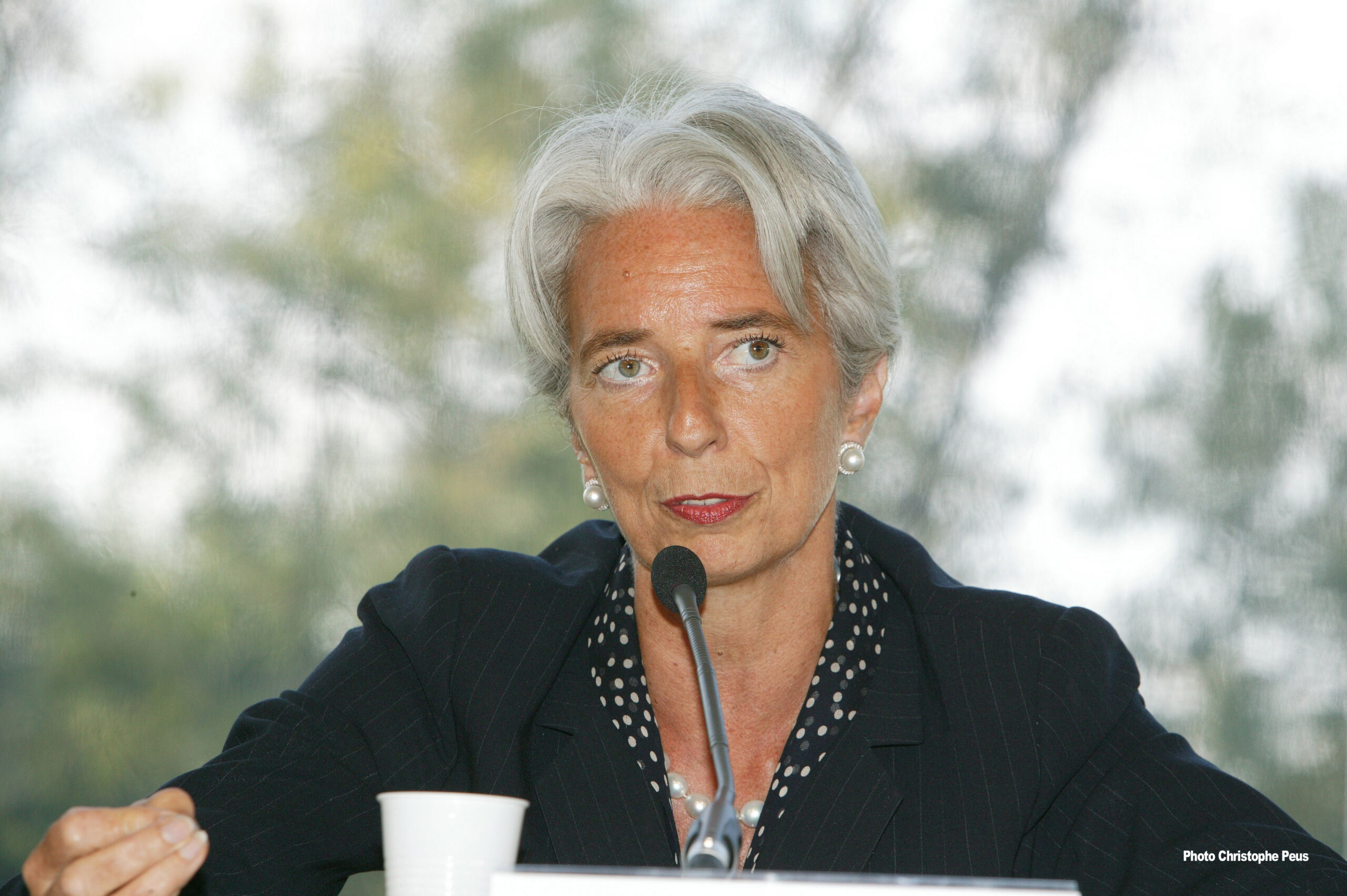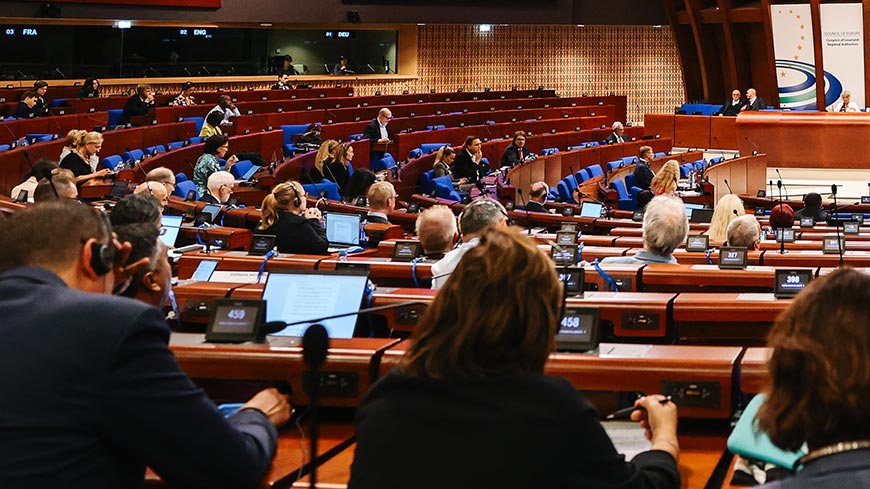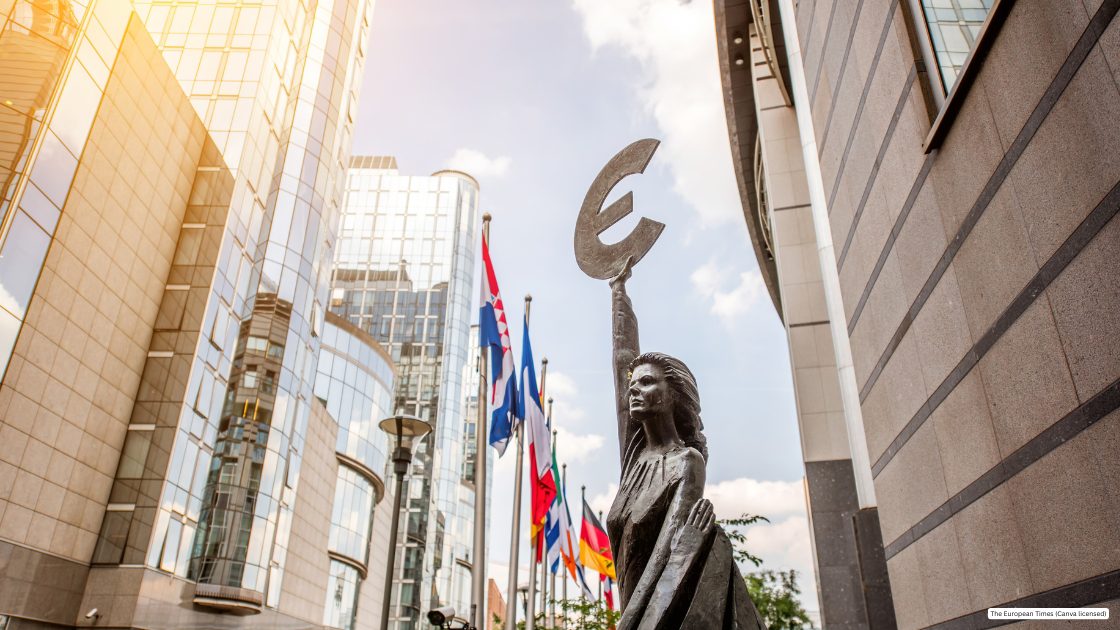Politics
Lessons from Ljubljana in uncertain times

Speech by Christine Lagarde, President of the ECB, at the official dinner of Banka Slovenije in Ljubljana, Slovenia
Ljubljana, 16 October 2024
It is a pleasure to be here this evening.
Not far from here, tucked away in the National and University Library, lie copies of the Abecedarium and the Catechism. These two texts, written by the religious reformer Primož Trubar in 1550, were the first ever books to be printed in Slovenian.[[1]
At a time when German was the language of the ruling classes, Trubar’s pioneering act was fundamental in helping to establish the national identity of Slovenians.[[2]
Today, his portrait graces the €1 coin in Slovenia, framed by the famous words found in the Catechism, “Stati inu Obstati” – “to stand and withstand”.[[3]
It is telling that both books – one a primer for the Slovenian language, the other guidelines for religious observance – were designed to teach, for there is much that Europe can learn from Slovenia in the uncertain world we now face.
The global order we knew is fading. Open trade is being replaced with fragmented trade, multilateral rules with state-sponsored competition and stable geopolitics with conflict.
Europe had invested considerably in the old order, so this transition is challenging for us. As the most open of the major economies, we are more exposed than others.
So, in this new landscape, we too must learn “to stand and withstand”. And we can do so by drawing on two valuable lessons from Ljubljana.
Opportunity in times of uncertainty
The first lesson is that uncertainty can create opportunity.
While many in Europe are anxious about the future, Slovenians are no strangers to uncertainty.
Within a single generation, Slovenia made a success of the extraordinarily difficult transition from a planned economy to a market economy. Policymakers defied the odds by implementing tough structural reforms to first join the EU and, later, the euro area.
Today, Slovenia is a success story. It is a developed, stable and high-income economy, with the highest GDP per capita at purchasing power parity of central and eastern European countries (CEECs).
The nation’s success owes much to the creativity and vigour of its people and their innate ability to seize economic turning points and transform them into opportunities.
For example, when Slovenia joined the EU, it was exposed to greater levels of competition from other Member States in the economic bloc.
But Slovenia quickly capitalised on its skilled workforce to develop a new business model based on deep integration in the Single Market. Today, every single car produced in Europe has at least one component that is made in Slovenia.[[4]
For Europe, the changes in the global economy today represent a similar turning point. But if we approach it with the right spirit, I believe it can be an opportunity for renewal.
A less favourable global economy can push us to complete our domestic market. Fiercer foreign competition can encourage us to develop new technologies. More volatile geopolitics can drive us to become more energy secure and self-sufficient in our supply chains.
For Slovenia, the transformation of the automotive supply chain will be a particular challenge. But the economy is already adapting. For example, in July this year Slovenia secured a major investment in domestic electric vehicle production.[[5]
For many Slovenians, striding into an unpredictable future may seem like second nature.
One of your most famous paintings, “The Sower”, hangs on display here at the National Gallery. Depicting an agricultural labourer at the crack of dawn hard at work sowing seeds in a field, the painting represents Slovenians’ resolute determination in the face of uncertainty.
The rest of us in Europe will need to draw on this example in the uncertain times ahead. If we do so, we can also turn uncertainty into opportunity.
The importance of sharing the benefits of change
The second lesson from Slovenia is that the benefits of change can – and should – be more widely shared.
The path of renewal for Europe is inescapably linked with new technology, especially digitalisation. But new technologies can sometimes lead to uneven labour market outcomes.
Slovenia has undergone remarkable technological change over the past 20 years. Today, the country’s level of digital development is 7% above the CEEC average and it can compete with some of the most digitally developed EU countries in certain areas.[[6]
Yet Slovenia’s Gini coefficient – a measure of income inequality – is the second lowest in the OECD.[[7] The country also benefits from high levels of gender equality. Female labour force participation is higher than the EU average and nearly equal to that of men.[[8]
Many in Europe are worried about the challenges ahead, such as the effects of artificial intelligence on social inclusion. But we should let Slovenia’s example inspire us.
With the right approach, we can move forward and become more technologically advanced while ensuring everyone can benefit from the gains.
And when everyone benefits, Europe benefits too. Over three-quarters of citizens in Slovenia feel attached to Europe, and almost two-thirds identify as both Slovenian and European – levels that are well above their respective EU averages.[[9]
Conclusion
Let me conclude.
In today’s uncertain world, Europe must learn “to stand and withstand”. And it can do so by looking to Slovenia as an example of how to overcome challenges that come its way.
First, we must work hard to sow the seeds of success. And then, as the folk singer Vlado Kreslin sings, “vse se da” – “everything is possible”.
Thank you.
Source link
Politics
Local self-government in Iceland, Latvia and Malta: Congress adopts new recommendations

The Congress of Local and Regional Authorities of the Council of Europe at its 47th session has adopted recommendations on the application of the European Charter of Local Self-Government by Iceland, Latvia and Malta.
The Congress has called on Iceland to incorporate local self-government into domestic law. It concluded that Icelandic municipalities lead globally in terms of female voting and representation and welcomed the high level of fiscal autonomy in the country’s local self-government. However, despite previous Congress recommendations, Iceland did not incorporate local democracy and self-government principles into its law to ensure a clear division of responsibilities between central and local authorities.
Latviashould strengthen financial autonomy at local level, recommended the Congress. It called for an increase of revenue potential at the local level, aligning local financial resources with local competences, simplifying supervision and clarifying the division of competences.
As for Malta, the Congress praised it for Malta praised the 2019 local government reform, the lowering of the minimum age for local elections to 16, and Malta’s ratification of the Additional Protocol to the European Charter of Local Self-Government on the right to participate in the affairs of a local authority. However, it local authorities’ competences should be increased and administrative supervision limited.
Politics
ESMA responds to the Commission rejection of certain MiCA Technical Standards



DISCLAIMER: Information and opinions reproduced in the articles are the ones of those stating them and it is their own responsibility. Publication in The European Times does not automatically means endorsement of the view, but the right to express it.
DISCLAIMER TRANSLATIONS: All articles in this site are published in English. The translated versions are done through an automated process known as neural translations. If in doubt, always refer to the original article. Thank you for understanding.

The European Securities and Markets Authority (ESMA), the EU’s financial markets regulator and supervisor, has responded to the European Commission proposal to amend the Markets in crypto-assets Regulation (MiCA) Regulatory Technical Standards (RTS). ESMA acknowledges the legal limitations raised by the Commission but emphasises the importance of the policy objectives behind the initial proposal.
In the Opinion, ESMA takes note of the amendments proposed to the two RTS specifying:
- the information to be included in a notification by certain financial entities of their intention to provide crypto-asset services and
- the information to be included in an application for authorisation as crypto-asset service provider.
ESMA also reiterates that the final objective of these RTS is to ensure a thorough entry point assessment for applicant crypto-asset service providers (CASPs) and financial entities intending to provide crypto-asset services in the EU. This will increase the resilience of the crypto assets market and enhance investor protection in the crypto-assets space.
ESMA therefore recommends the Commission consider amendments to the MICA regulation (Level 1), namely:
- requiring applicant crypto-asset service providers and notifying entities to provide the results of an external cybersecurity audit; and
- including, in the assessment of the good repute of the members of the management body of applicant crypto-asset service providers, checks regarding the absence of penalties also in areas other than commercial law, insolvency law, financial services law, anti-money laundering and counter terrorist financing, fraud or professional liability.
Background
On 25 March 2024, ESMA published its first final report on the draft RTS specifying certain requirements of MiCA and submitted it to the EC for adoption. In September 2024, the Commission informed ESMA that it intended to adopt two of the proposed RTS with amendments and invited ESMA to submit new draft RTS reflecting the amendments provided.
Next steps
This opinion has been communicated by ESMA to the Commission, the European Parliament and the European Council.
The EC may adopt the two RTS with the amendments it considers relevant or reject it. The European Parliament and the Council may object to an RTS adopted by the EC within a period of three months.
Further information:
Cristina Bonillo
Senior Communications Officer
[email protected]
Source link
More from the author
– EXCLUSIVE CONTENT –
Politics
Cecila Dalman Eek elected President of the Chamber of Regions
On October 16th, the Chamber of Regions convened during the 47th session of the Congress of Local and Regional Authorities, marking a significant moment in regional governance. The assembly saw the election of Cecilia Dalman Eek from Sweden as the new President, filling a crucial vacancy in the leadership.
Dalman Eek, a prominent figure in regional politics, has been a dedicated member of the regional council of Västra Götaland. Her election to the presidency comes after her previous role as the 5th Vice-President of the Chamber of Regions, where she demonstrated her commitment to social inclusion and regional development. Additionally, she has been an active member of the Social Inclusion Committee, advocating for policies that promote equity and accessibility within local governance.
The election of Dalman Eek is seen as a pivotal step towards enhancing the representation of local and regional authorities in broader political discussions. Her leadership is expected to bring a fresh perspective to the Chamber, focusing on collaboration and the empowerment of local communities.
As the new President, Dalman Eek will face the challenge of addressing pressing issues that affect regions across Europe, including economic recovery, climate change, and social cohesion. Her experience and dedication to public service position her well to lead the Chamber in these critical areas.
The Congress of Local and Regional Authorities continues to play a vital role in shaping policies that impact local governance, and with Dalman Eek at the helm, there is optimism for a proactive and inclusive approach to regional challenges.
-

 EU & the World5 days ago
EU & the World5 days agoIs Disney World Open After Hurricane Milton? AI Photos of Fake Flooding Circulate Online
-

 EU & the World6 days ago
EU & the World6 days agoTropical Storm Leslie’s Path: Where Is the Possible Hurricane Headed?
-

 EU & the World6 days ago
EU & the World6 days agoIs Leslie Abramson Still in Contact With the Menendez Brothers?
-

 EU & the World6 days ago
EU & the World6 days agoKrispy Kreme Doughnuts Partners With McDonald’s: How to Get a Free Doughnut
-

 Sports4 days ago
Sports4 days agoMarathon, new women’s world record
-

 Sports4 days ago
Sports4 days agoPep Guardiola opens to a return to Italy
-

 EU & the World6 days ago
EU & the World6 days agoDiddy’s Kids: Everything You Need to Know About His 7 Children and Their Mothers
-

 Sports3 days ago
Sports3 days agoNations League: Italy poker, overcome Israel. Azzurri one step away from the quarters








